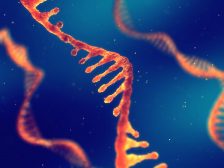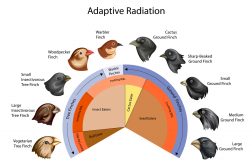Definition
noun, plural: hyperthermophiles
An organism that is adapted to live and thrive at temperature as high as 80°C and above
Supplement
A hyperthermophile is an organism that can live and thrive at high temperatures, i.e. at or above 80°C. Hyperthermophiles are one of the three types of groups of thermophiles. Thermophiles are organisms capable of living at high temperatures, i.e. between 41 and 122 °C. Other groups are the obligate thermophiles and the facultative thermophiles. The obligate thermophiles cannot survive at relatively lower temperatures in contrast to the facultative thermophiles that can still thrive at lower temperatures such as below 50 °C.
Hyperthermophiles prefer high temperatures, e.g. above 80 °C for optimal growth. They are able to thrive in such extreme temperatures because they contain enzymes that can function at high temperatures. They are an example of extremophiles. While they are able to live at high temperatures, most organisms would not be able to survive upon exposure to the same temperature.
Many hyperthermophiles are from the domain Archaea. Some of them are Pyrolobus fumarii (an archaeon that can thrive at 113 °C in Atlantic hydrothermal vents), Pyrococcus furiosus (an archaeon that can thrive at 100 °C), Methanococcus jannaschii, Sulfolubus , etc. Apart from archaea, there are also bacterial species that are regarded as hyperthermophile, such as Geothermobacterium ferrireducens, Aquifex aeolicus, etc.
Word origin: hyper– (over) + thermophile
See also:
Dictionary > Hyperthermophile
You will also like...

Protein Synthesis
Part of the genetic information is devoted to the synthesis of proteins. mRNA, a type of RNA, is produced as a transcri..

Consciousness and Behavior
Human consciousness and behavior are an interesting topic since they are determined and controlled by the brain. Conscio..

Water in Plants
The movement of molecules (specifically, water and solutes) is vital to the understanding of plant processes. This tuto..

Adaptive Radiation
The diversification of several new species from a recent ancestral source, each adapted to utilize or occupy a vacant ad..

Temperature Regulation in Animals
This tutorial elucidates body temperature regulation. Know the details here to learn how the body sets the body temperat..

Human Perception – Neurology
This tutorial investigates perception as two people can interpret the same thing differently. Know more about human perc..

